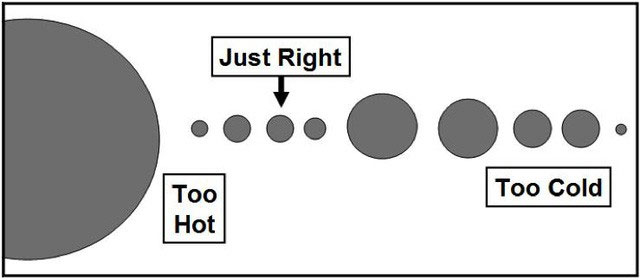The law explains why sometimes we say we want to achieve something but give up a few days later
People love challenges, but on the condition that the challenge does not exceed the maximum difficulty they can tolerate.
For example, imagine you're playing tennis. If you play a serious match with a 4-year-old, you will quickly get bored. The match is too easy. Conversely, if you try to play against a professional tennis player like Roger Federer or Serena Williams, you will lose motivation for another reason. The match is too difficult.
Compare these experiences with playing tennis with a well-balanced person. During the match, you win a few points and also lose a few points. You have a chance to win, but only if you really try. Your focus is narrowed, distracting factors fade away, and you feel completely focused on the game. The challenge you face "is difficult to control". No guarantee you will win, but you can win. According to science, such challenges are more likely to keep us motivated in the long run.
Challenges that are too easy for your current ability are boring, and challenges that are too difficult are frustrating. But the challenges that lie at the boundary of success and failure are extremely attractive to the brain. We want nothing more than mastering a skill that is not far beyond our reach.
We can call this phenomenon Goldilocks Rule . This rule says that people are most effective when doing things that are a bit more difficult than their ability. Not too difficult is not too easy.
Martin's comedy career is a perfect example of the Goldilocks Act in practice. Each year, the length of performance is longer, but only longer than about 1 or 2 minutes. He always added new repertoire, but at the same time retained some jokes that would definitely be funny. Having just won enough to keep him motivated, and there were just enough mistakes to keep him going.

Conquering difficult-to-control challenges has proven to be not only motivating but also a great source of happiness. According to psychologist Gilbert Brim: "One of the important sources of happiness of people is to do things that are difficult to fit, not too difficult nor too easy."
The harmony between happiness and maximum efficiency is called flow , the state that athletes and performers experience. In other words, they are happy or excited by doing something very skillfully. Flow is the mental state achieved when you focus on one thing so everything around becomes blurry.
However, in order to achieve maximum efficiency, you must not only conquer challenges that are difficult to match, but also measure your most recent progress. Psychologist Jonathan Haidt explains that one of the key to achieving that flow state is "you have immediate feedback on the performance of each step".
Feeling self-improvement in the present is a tremendous source of motivation. Steve Martin tells a joke and immediately knows whether it works or not because of the audience's reaction. Imagine, it's exciting when your story makes the crowd laugh. The immediate positive feedback that Martin received after telling a good joke might have been enough to help him overcome his fears and inspire him for weeks.
In other areas of life, the form of measurement may be different, but measurement is extremely important to achieve a blend of motivation and happiness. In tennis, you get instant feedback based on whether you win or not. Regardless of what measurement is, if we want to maintain motivation, there must be a way for the brain to visualize progress. We need to see our victories.

The key to maintaining motivation can be summarized as follows:
- 1. Follow Goldilocks' rules and perform things that are difficult to control.
- 2. Measure progress and get instant feedback.
Wanting to improve life is easy, but maintaining improvement is another thing. If you want to stay motivated, start with a challenge you can control (difficulty), measure progress, and repeat this process.
- Names can impact promotion opportunities
- The new hypothesis explains why male and female lemurs are about the same size
- When should I give him a diaper?
- It is possible to give birth without a mother's egg
- Why is the sky cloudless on sunny days?
- 16 scenes of affliction that we are suffering in rainy days
- China admits toxic chemical scandal
- Sleeping a lot helps students achieve better results
- African lions in the Botanical Garden give birth
- Give birth to pandas
- A year has 540 days
- Girls are blind for 3 days per week
 'Fine laughs' - Scary and painful torture in ancient times
'Fine laughs' - Scary and painful torture in ancient times The sequence of numbers 142857 of the Egyptian pyramids is known as the strangest number in the world - Why?
The sequence of numbers 142857 of the Egyptian pyramids is known as the strangest number in the world - Why? History of the iron
History of the iron What is alum?
What is alum?